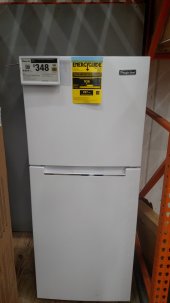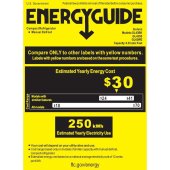Horsefly
Solar Wizard
I think I remember seeing a combo absorption / compressor fridge, but because the two methods share so little hardware, the usable space of the fridge was tiny, since the two separate cooling processes took up a ton of the space.Please link to this. I couldn't find it. My understanding is that the compressor cooling unit completely replaces the absorption cooling unit, so you lose the propane/AC option.
Edit to add: I have no idea where I saw such an animal.




